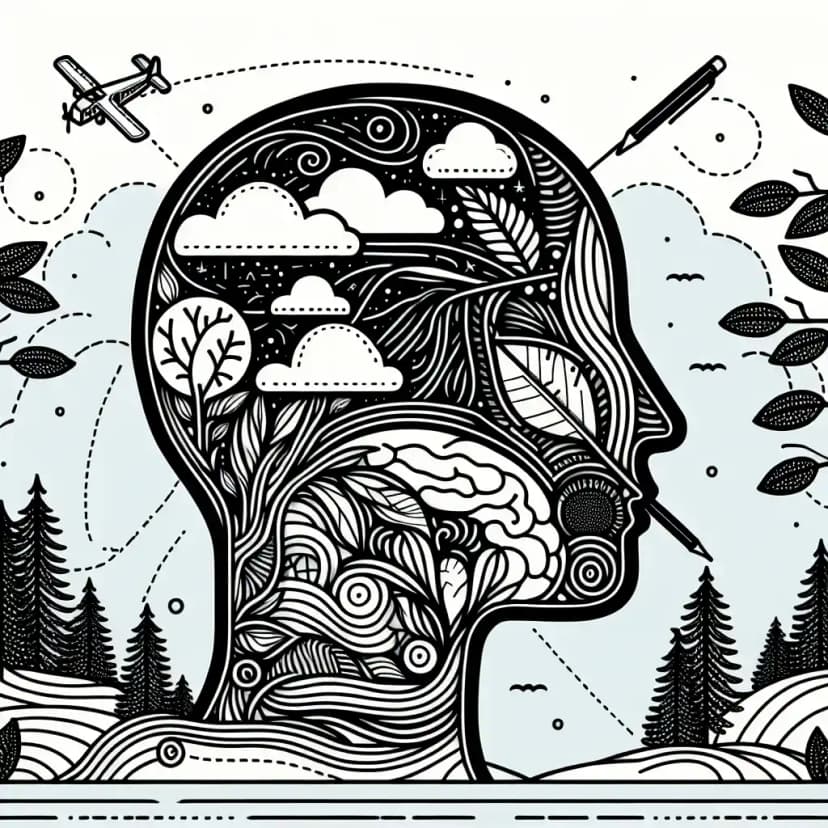Navigating the Mind: Expert Insights on Mental Health and Therapeutic Writing

In our quest to understand and improve mental health, the guidance of experts is invaluable. Psychologists, therapists, and mental health professionals spend their lives studying the complexities of the mind and the myriad ways we can approach healing. One such method, often recommended by experts, is therapeutic writing. This blog post delves into expert insights on coping strategies, the significance of mental health awareness, and the profound benefits of therapeutic writing.
Understanding Mental Health: A Professional Perspective
"Mental health encompasses our emotional, psychological, and social well-being," explains Dr. Ayesha Khan, a clinical psychologist with over 15 years of experience. "It affects how we think, feel, and act. Moreover, it also helps determine how we handle stress, relate to others, and make choices."
The importance of mental health awareness cannot be overstated. By understanding the signs and symptoms of mental health issues, individuals can seek help earlier, potentially mitigating long-term complications. "Awareness is the first step towards healing," Dr. Khan emphasizes. "Knowing when to seek help is crucial to recovery."
Coping Strategies from the Experts
Coping strategies are techniques that help individuals deal with stress and adversity more effectively. Experts in mental health offer a range of strategies designed to suit different needs and preferences.
- Mindfulness and Meditation: "These practices help ground you in the present moment, reducing stress and enhancing emotional regulation," shares Jonathan Reyes, a licensed therapist specializing in mindfulness-based stress reduction.
- Physical Activity: "Regular exercise releases endorphins, natural mood lifters, which can improve your mood and reduce feelings of depression," notes Emily Turner, a wellness coach and counselor.
- Social Support: "Building a supportive network is crucial. Sharing your thoughts and feelings with trusted friends or family members can provide comfort and reduce feelings of isolation," advises Dr. Raj Patel, a psychiatrist.
The Benefits of Therapeutic Writing
Therapeutic writing, or journaling, is a technique that involves expressing thoughts and feelings in writing. It's a method that mental health professionals frequently recommend due to its numerous benefits.
- Emotional Release: "Writing provides an outlet for expressing difficult emotions, such as anger, sadness, or frustration, in a safe and private manner," says Dr. Khan.
- Clarity and Perspective: "Journaling can help you clarify your thoughts and emotions, leading to greater self-awareness and insight," Jonathan Reyes adds. "It's a tool for self-reflection that can reveal patterns in your thoughts and behaviors."
- Problem-Solving: "When you write about challenges, it can help you identify solutions or come to terms with situations that are beyond your control," explains Emily Turner.
Starting Your Therapeutic Writing Journey
Beginning a therapeutic writing practice is simple, and there's no right or wrong way to do it. Here are some tips from our experts to get started:
- Find a Quiet Space: Choose a comfortable and quiet place where you can write without interruptions.
- Set a Routine: Try to write regularly, whether it's daily or a few times a week, to establish a habit.
- Write Freely: Allow your thoughts and feelings to flow without worrying about grammar or structure. This is for your eyes only.
Conclusion
The journey toward improved mental health is personal and unique to each individual. Incorporating expert-recommended coping strategies and therapeutic writing into your routine can provide a solid foundation for this journey. Remember, seeking help when needed is a sign of strength, and there's a community of professionals ready to support you every step of the way.